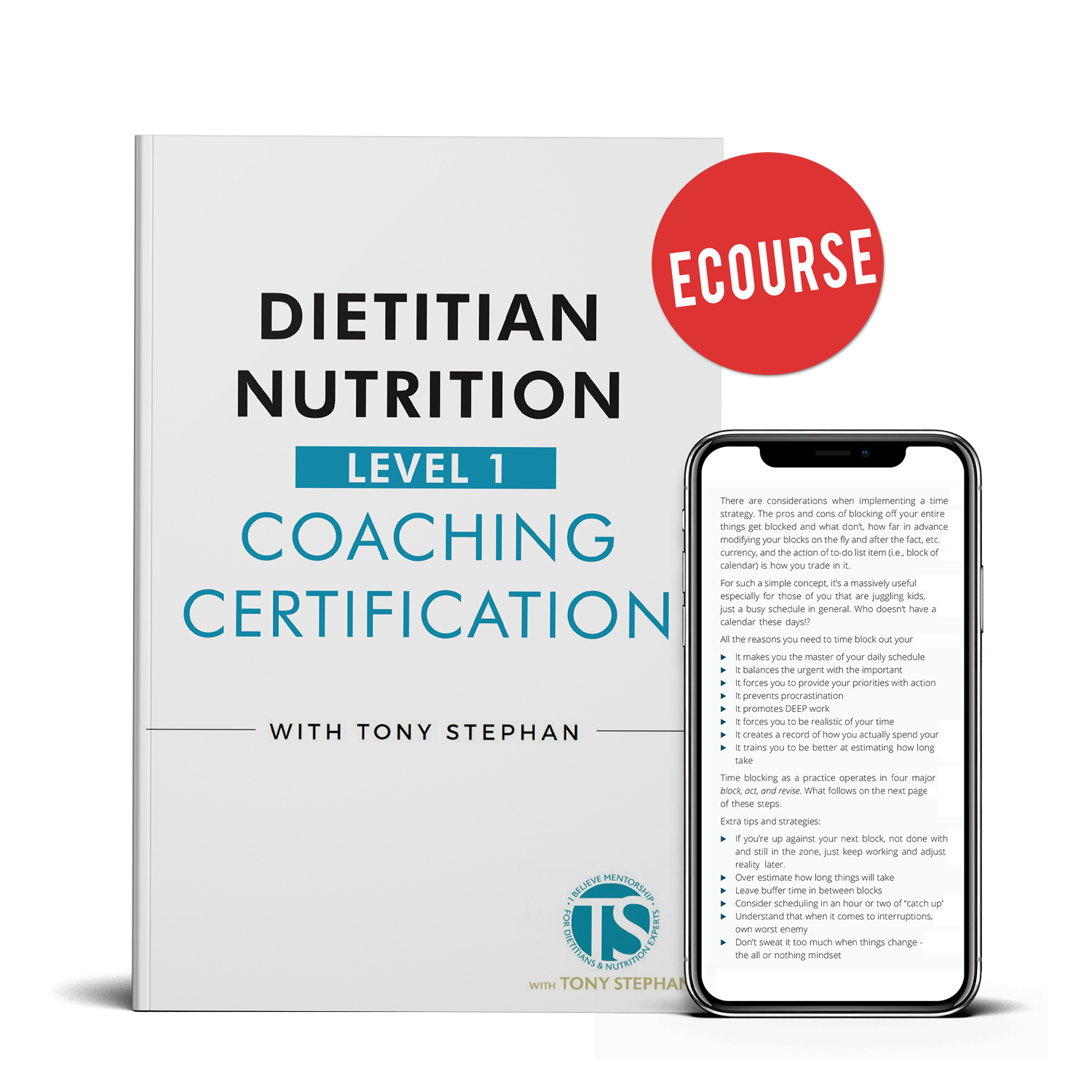Hi My Name is Tony, I’m a Dietitian, and I won’t give you a meal plan…
She was crying in my office, frustrated, and humiliated.
This was the fifth client of the week who had come in, defeated and demoralized because they were unable to stick to the rigors of the meal plan I had provided them with.
I sat there perplexed.
I reviewed her meal plan and everything appeared to be in order. All the food groups were represented and precisely broken down into six balanced and perfectly proportioned meals.
I was doing exactly what I was taught to do with a client in dietetics school. Giving them a meal plan to help achieve their health and fitness goals. I always assumed this is what people wanted when they came to work with me as their registered dietitian.
I sat there in deep thought and said to myself: “ I am literally giving my client the answers to the test! All she has to do is follow the plan. It’s so simple!”
Yet, if it was simple, why were so many people failing at it?
I wondered, why couldn’t my clients stick to what appeared to be the perfectly structured plans I created for them?
This constant internal deliberation caused me to have a Harry Potter esque migraine where his lightning bolt scar was throbbing as if Voldemort was near.
That’s when I had one of the best epiphanies of my young career as a dietitian.
The perfect plan on paper means NOTHING if it does not have real world application.
I realized most of my clients could maintain their meal plans for a few days, maybe even a few weeks. However, they ended up getting in trouble when life didn’t follow the plan.
The perfect meal plan on paper didn’t apply to common life circumstances such as:
Going out for sushi with your boss for a lunch meeting.
Your partner wanting to take you out for a special anniversary dinner at your favorite restaurant.
When you’ve been driving your kids around all Saturday with back to back soccer practices and you are RAVENOUS and need to stop for something quick on the road.
This is when the real world application of a overly structured meal plans fail.
So what was the solution?
I thought to myself, how much better would it be to create goals around macronutrients (protein, carbs, fats, fiber) but allow my clients the freedom and flexibility to choose their foods daily.
I still wanted them to select the majority of their food choices from foods such as lean protein, fresh fruits and veggies, whole grain carbohydrates, and plant based fats. But I also wanted them to have the flexibility to enjoy the foods they love in moderation without the guilt of breaking their meal plan.
That’s when I began to implement a flexible approach to nutrition.
I stopped providing pre-selected food choices and rigid structures and started implementing macronutrient goals with my clients and allowing them to pick and choose the foods the enjoy daily with the premise of making around 80-90% of their choices from nutrient dense foods, and the remaining 10-20% from fun foods that they enjoyed.
The biggest issue I’ve found with meal plans is that when clients are unable to adhere to them, they feel guilty, demoralized, defeated, and downright bad about themselves. This usually leads to a downward spiral of events followed by multiple days of binge style eating, skipping workouts, and contemplation of quitting their health and fitness journey.
Flexible dieting helps avoid all of that by never forcing you to eat any specific foods. You have total flexibility and creative control over your meal choices and options.
Avoiding the guilt of breaking a meal plan is one of the largest advantages of a flexible approach to nutrition.
Sushi lunch with your boss – No problem! Research the menu on the car ride over and select an option that fits into your daily totals!
Special romantic night out with your partner – Awesome! You have the freedom to eat out, fit it into your plan, and not feel guilty about it tomorrow morning.
Once I started implementing this approach with my clients, the results were absolutely astounding. Compliance skyrocketed, thus creating better outcomes with their aesthetic and performance goals. I also noticed one other outcome that I didn’t expect.
Clients reported feeling “more in control” of their own plan. They no longer felt as if they were following someones else plan. They felt as if they were in the drivers seat of their own program, and more in control of the outcome.
That was music to my ears.
Who doesn’t want to feel in control of their program, their progress, and their goals, right?
At the time, switching from meal plans to a flexible approach with nutrition was one of the biggest headaches of my career as a young dietitian. In retrospect, it was one of the pivotal moments that set me up for success as an entrepreneur who owns his own online coaching business today.
The message I want to leave you with today is very simple.
Compliance is they key to success with any nutrition protocol.
I’m talking longterm compliance. That’s where all the magic happens with your nutrition. It’s very parallel to fitness. If you want to get a better squat, would you squat some weeks, and then skip it all together for a few weeks, and expect massive improvement at the end of the year? No, you know you have to put in the reps every week to get stronger.
The same concept applies to nutrition. You put in the reps by being consistent on a weekly basis. Not perfect, but consistent. When your plan is a flexible and allows for freedom in food choices and adaptability to your lifestyle, it becomes much easier to be consistent.
If your nutrition plan does not fit into your lifestyle, find another plan. Period.





